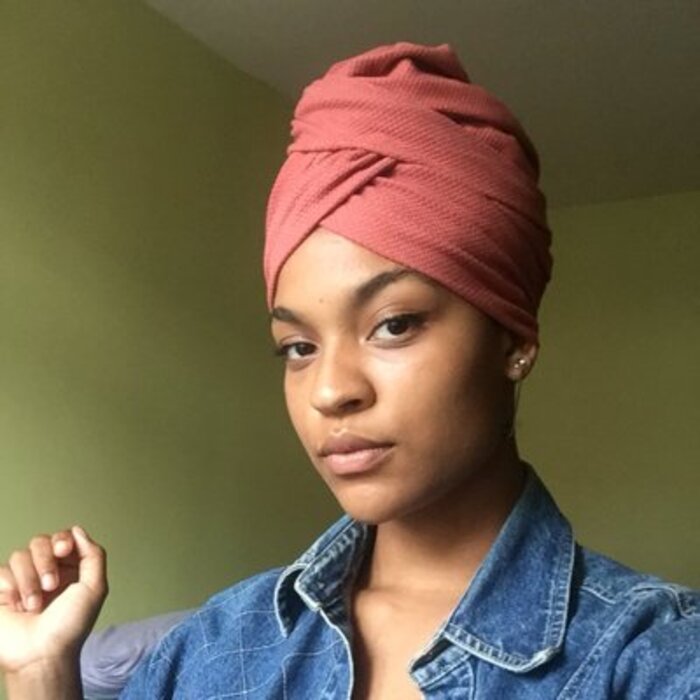Purveyors of: The calm voice who whispers revolt in your ear.
File next to: Queen Latifah circa 1993, Da Brat, J Dilla.
Playing: Wavelength Winter Festival Night 1, Friday February 15th @ The Garrison. Get tickets here!
Myst Milano is a multi-disciplinary artist, producer, DJ, rapper, and member of The RUDE Collective. Her work is vast and always carried out with the utmost importance; making spaces for queer-identifying-women, teaching DJ workshops, and writing cutting songs. Her releases of BADLANDS and her latest Kali Ma EP blends a myriad of choral and synth textures to form smooth jams. Wavelength’s Emma Bortolon-Vettor had a chance to ask Myst a few questions about her work before performing at Night 1 of Wavelength Winter Fest 19.
Could you tell us a little bit about your creative process behind Kali Ma?
I found a book about Hindu goddess Kali on the ground during a difficult time in my life. She has been demonized in modern culture as something evil, but in reality she’s the mother from which we all came and the mother to which we will all return; the destroyer of demons and a guide through the darkness. I wanted to channel that.
How did you come to define your rap and vocal style?
It’s never been anything I’ve seeked to define. It all happens naturally.
In an interview with Xtra, there was a discussion involving New Ho Queen, Toastr, and RUDE Collective, regarding the need for queer women-focussed spaces without the parameters of being attached to a bar. How has RUDE Collective opened up these spaces?
RUDE in particular opens up these spaces by prioritizing hiring women, and by working with women to ensure their voices are represented in an authentic way. It also gains women access to spaces they may not have had access to otherwise.
If you had the keys to the city, what is the first thing you would do?
Unbar all abandoned spaces so homeless folks could have crude shelter. At the very least.
How would you describe a punk energy in hip-hop? Does punk take on a new meaning surpassing genre?
Hip-hop and punk were both counterculture movements created by lower-class young people hoping to subvert the norm. At the end of the day they’re one and the same: kids seeing something wrong with the world they live in and wanting to express their need for change. I think Hardcore lives on but “punk” is dead. It’s a culture and energy that has kind of been used and abused by the zeitgeist, in my opinion. I’m also not the arbiter of punk by any means. But I guess “punk” really just means not giving a fuck.
Last week, The Globe & Mail published an article celebrating The Drake Underground’s birthday. There was a statement regarding barriers that the hip-hop scene encounters, one being enhanced security issues. What are your thoughts on this?
The notion that hip-hop shows need more security is disgusting, and it’s the same covertly racist attitudes that stop rap artists from thriving in this indie rock circle jerk of a city. 500 drunk hardcore punk kids beating the shit out of each other is totally acceptable in the eyes of the white men that control venue space, but let a black kid spark a blunt and laugh with friends outside and suddenly hip-hop is an issue. This is completely outrageous. s
What are you listening to right now?
A little bit of everything.

